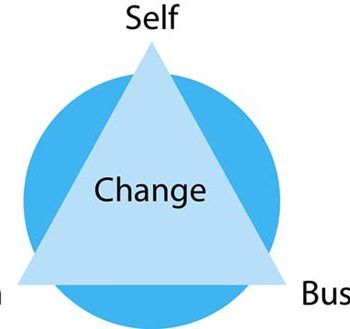Emotionally Intelligent Organizations

By Ed Quinn – President and Founder of InnerWork Company
Our research confirms—and perhaps it’s no surprise—that emotionally intelligent organizations outperform the competition. Research over the last twenty years has demonstrated a compelling connection between Emotional Intelligence (EQ) skill levels in employees and the levels of collaboration, communication, and trust across the organization.
The fact is, humans are inherently social and we thrive when fully engaged in collaborative teamwork—so much so that strong teamwork often absorbs and adapts around temporary shortfalls in technical skill. If you’ve ever worked in an office culture stuck in patterns of social interaction known as “negative interdependence,” such as when individuals prevent others from achieving because of their own competitiveness or social ignorance, then you understand that while technical competency is crucial, it’s perhaps less important than the “team skills” of collaboration, communication, and negotiation when pressure is on to deliver results.
Data supports the intuitive notion that when team members rally around a shared common goal, and support each other individually in the process, both morale and productivity rise. Additionally, our research has also shown that emotionally intelligent teams are more resilient in the face of adversity, with important corollary benefits to their own personal health and well-being—as well as the organization’s bottom line.
So, how do you help foster positive interdependence in your organization or work group? Early identification and measurement of emotional intelligence skills in your hiring process is a best practice and a great first place to start. While harder to measure than objective technical skills, we have created several emotional intelligence (EQ) measurement and organizational assessments that can be used in the hiring process. An important next step is to use organizational assessments and EQ benchmarking to understand the level of positive social interdependence of your employees and co-workers.
The InnerWork Company has also been a leader in the development of specialized team-building sessions centered on using emotional intelligence to create high performance teamwork. These EQ team-building exercises increase the 1) self-awareness, 2) self-regulation, 3) empathy, 4) motivation, and 5) social awareness skills in individual team members, which in turn increases your teams propensity for collaborative thinking.
You may also enjoy the related blog posts on The Power of the Workplace Optimist and Exercises for Building Resilient Teams.
- 0 Comments

